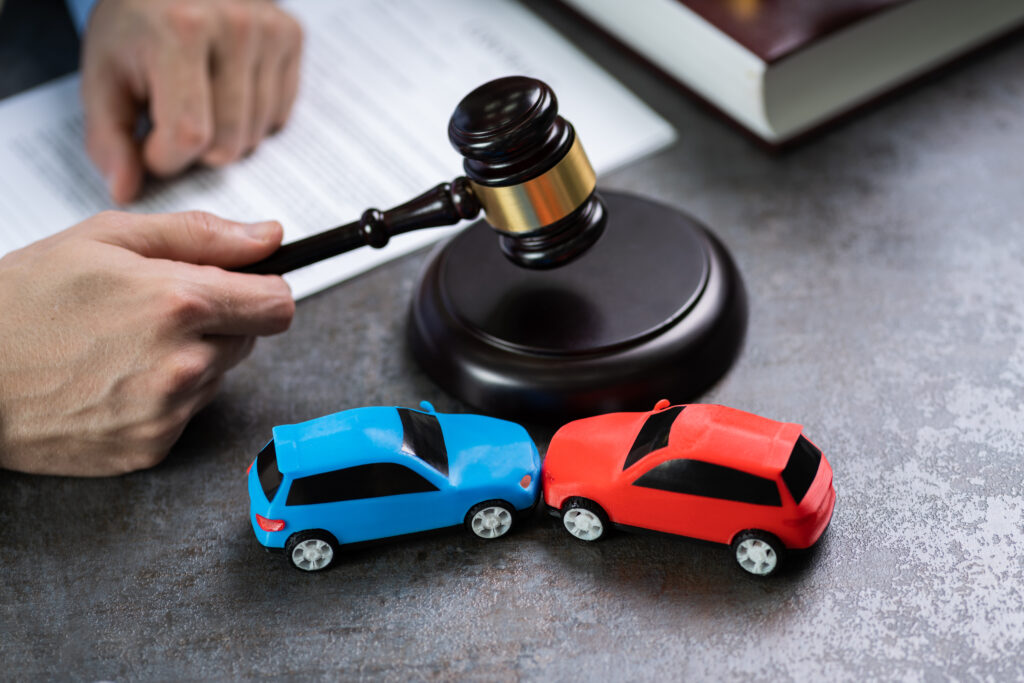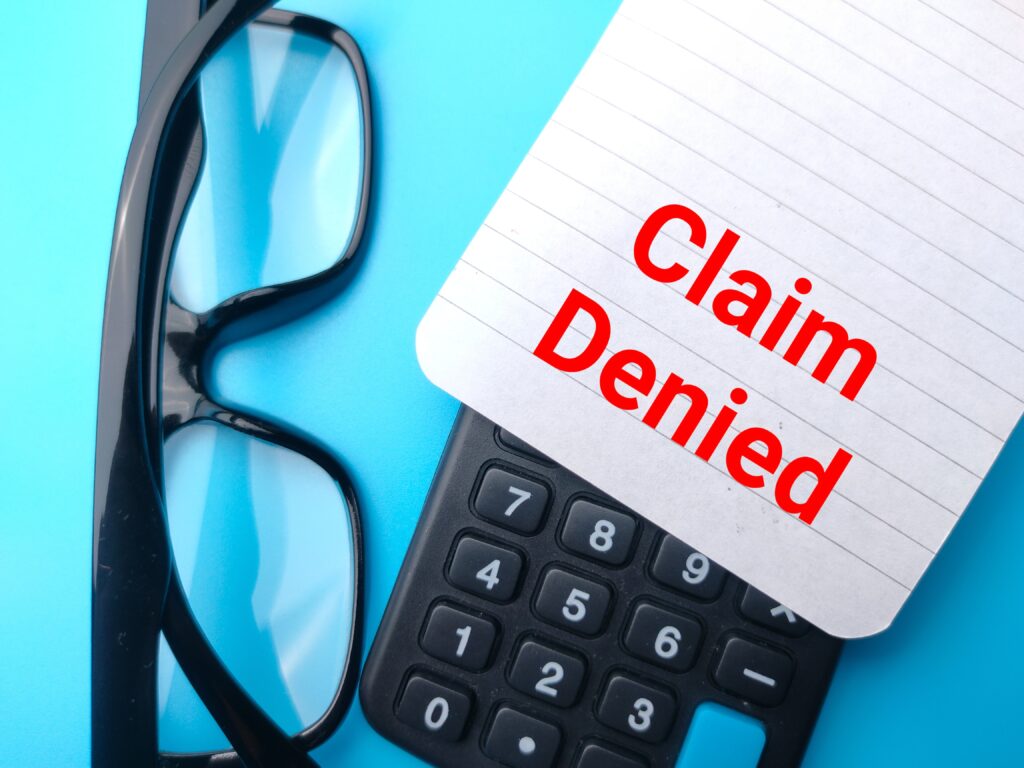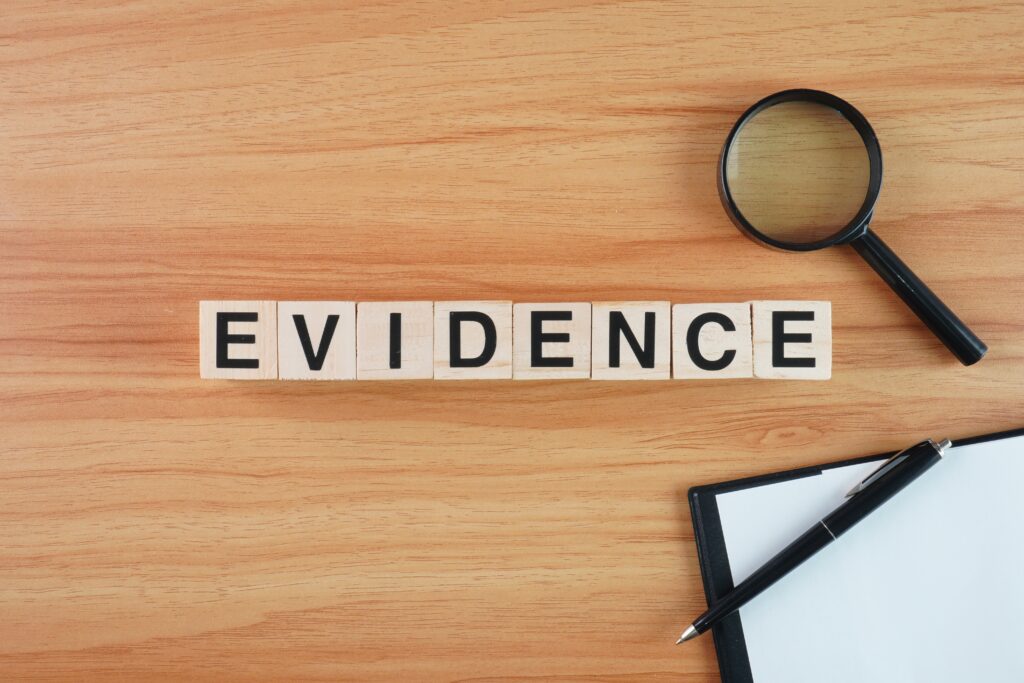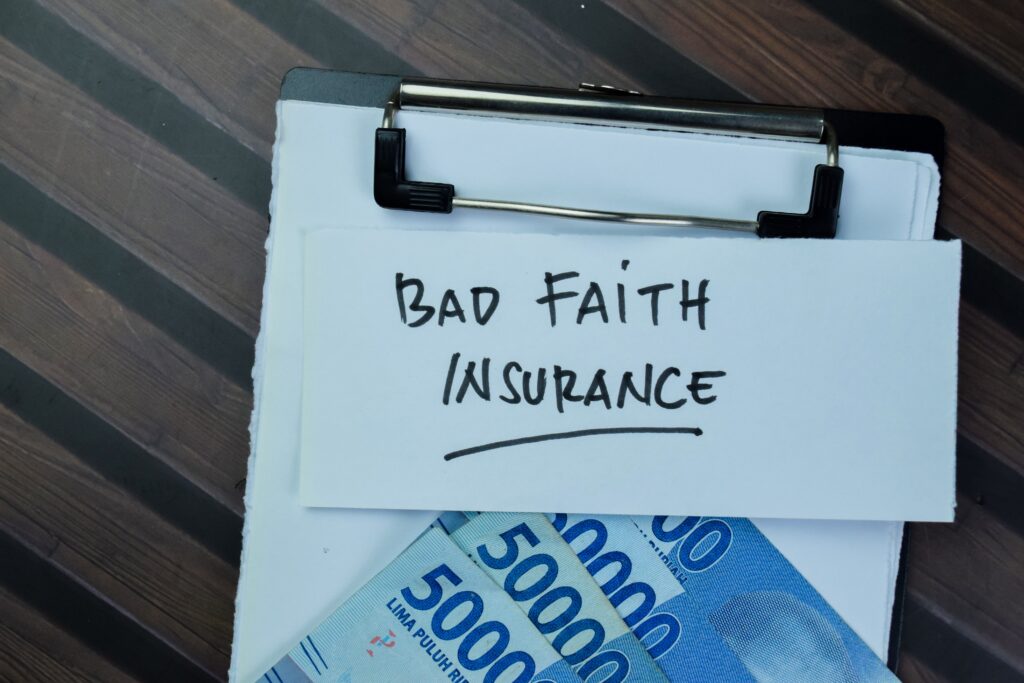As if dealing with injuries and property damage after a car accident isn’t bad enough, having your car insurance claim denied can be even worse. It can be challenging and stressful when an at-fault driver’s insurer denies your injury claim.

However, one of the most frustrating situations is when your own insurance company denies your no-fault or uninsured motorist insurance claim. Both scenarios happen more often than they should.
Claim denials leave injured parties with questions and worries about how they will pay for their medical bills and the damages to the vehicles and make up for their lost income. It can leave them feeling helpless and unsure of what to do next.
If you can relate, it’s time to explore the steps you can take if an insurance company denies your car accident claim and how hiring a reputable Feasterville car accident attorney can help you.
Get A Free Consultation Today!
Table of contents
- Types of Car Accident Claims
- Understanding Insurance Claim Denials
- What to Do if your Car Insurance Claim is Denied
- Appeal the Denial
- The Importance of Hiring a Car Accident Lawyer
- Mediation & Alternative Dispute (ADR) Resolution Options
- Filing a Lawsuit
- What is Insurance Bad Faith?
- Was Your Car Insurance Claim Denied? Contact a Skilled Car Accident Attorney Today
Types of Car Accident Claims
When filing a claim after a car accident, a lawyer can explain the different claims you can file. There are two main types of car accident claims: first-party claims and third-party claims.
First Party Claims
A first-party claim is when you, as the policyholder, file a claim with your insurance company under personal injury protection or uninsured motorist coverage.
This type of claim may include coverage for medical expenses, property damage, and lost income. Even though you pay premiums on time, your insurance company can still deny first-party claims.
Third-Party Claims
On the other hand, a third-party claim is when you file a claim with the at-fault driver’s insurance company. This type of claim seeks compensation for damages and injuries from the other driver’s insurance policy.
Third-party claims are often more complicated than first-party claims as you are dealing with another driver’s insurance company, which may try to minimize or deny your claim altogether.
Understanding Insurance Claim Denials
First, you must understand that insurance companies look for reasons and ways to deny claims. They are in business to make money, just like any other business. If they pay fairly on all claims, they will lose money.

While they can’t justify denying all claims, many insurance companies will deny as many as possible to protect their bottom line. It might seem like good business sense, but it’s unethical and done in bad faith.
Insurance claim denials can be frustrating and overwhelming for car accident victims. When an insurance company denies your claim, it means they believe there are grounds to reject your request for compensation. A lawyer can explain the common reasons for claim denials and your rights and options moving forward.
The most common reasons for insurance claim denials include:
- The person bringing a first-party claim wasn’t listed on the car insurance policy: To file a first-party claim, the policy must list you as a covered driver. If you are not listed, the insurer may deny your claim.
- The car insurance policy didn’t cover the vehicle: If the car involved in the accident is not listed on the insurance policy, coverage may be denied. All vehicles you own or regularly use should be included in your policy.
- There was no policy in effect when the accident happened: If your insurance policy was inactive or lapsed at the time of the car accident, the insurance company will likely deny your claim.
- The claim exceeds applicable policy coverage limits: If the damages and injuries you are claiming exceed the coverage limits of your policy, the insurance company may deny the excess portion of your claim.
- The insurance company's investigation found that the policy doesn't cover the accident: Insurance companies investigate to determine whether the accident falls under your policy's coverage. It may deny your claim if they conclude the policy did not cover you.
- The claimant was driving without a license or was intoxicated at the time of the accident: Your claim may be denied if you were driving without a valid license or under the influence of alcohol or drugs at the time of the accident.
- The claimant’s injuries were preexisting, or vehicle damage wasn’t the result of the accident: Insurance companies may argue that your injuries were preexisting or that the accident did not damage your vehicle, leading to a denial of your claim.
- The insured failed to promptly report the accident to the insurance company: Report the accident to your insurance company as soon as possible. If you fail to do so, the insurance company may deny your claim.
- The insured lied to the insurance company when applying for coverage or during the claim process: Deal honestly with your insurance company. The insurer may deny your claim if you were dishonest in your application or during the claim process.
Whether you file a first or third-party claim, the insurer must tell you why you were denied and what your next steps are if you disagree with their decision—typically, this is to provide more evidence or file an appeal.
What to Do if your Car Insurance Claim is Denied
Review Your Insurance Policy
When facing a claim denial, carefully reviewing your insurance policy is usually the first step.
Here are steps to follow when reviewing your policy:
- Obtain a Copy of Your Policy: Request a copy from your insurance company and review it thoroughly. Pay close attention to the coverage limits, exclusions, and other relevant provisions.
- Understand the Policy Language: Insurance policies are often intentionally complicated and filled with legal terms and jargon. This is why it’s best to seek legal assistance to help decipher the language.
- Seek Clarification: Contact your insurance company if your policy contains vague or ambiguous terms. Understanding your specific coverage will help determine if the denial is valid.
Hire a qualified car accident attorney to review your policy and your claim denial on your behalf. They are skilled in reading and understanding these policies and know the tactics insurance companies will use to attempt to deny claims they shouldn’t deny.
Gather Evidence

If the insurance company lacks the evidence and information they need to make a fair decision in your claim, provide them with additional evidence.
It may include:
- Pictures of your injuries, damages to your vehicle, or the accident scene
- Video surveillance that may have recorded the accident or the circumstances leading up to it
- The accident report from the responding law enforcement agency
- Relevant medical records, including hospital visits, doctor’s notes, and treatment plans, as they demonstrate the extent of your injuries and the medical expenses incurred
- Witness statements
- Records of your out-of-pocket expenses, medical bills, or even your notes or journal about the accident and your pain and suffering
Appeal the Denial
If the insurer denies your claim, you can appeal the decision.
Here’s how to move forward with the appeals process:
- Review the Denial Letter: Carefully read the denial letter from the insurance company. It should provide a specific reason for the denial, which will guide your appeal.
- Prepare an Appeal Letter: Write a detailed appeal letter that addresses the reasons for the denial and provides additional evidence supporting your claim. Explain why you believe the denial was incorrect and outline the damages you seek.
- Submit Supporting Evidence: Include any additional evidence you have gathered since the denial in your appeal. It can include photographs, witness statements, medical records, or other relevant documentation.
- Follow the Timeline: Pay attention to any deadlines for submitting your appeal. Missing these deadlines may result in a forfeit of your right to contest the denial.
- Hire Legal Representation: The appeals process can be tricky, and it’s not something you want to make a mistake about. Instead of going through the process yourself, consult with an experienced car accident lawyer. They will review your denial letter, prepare a strong appeal, and represent your interests. Rest assured that your appeal has the best chance of success with an attorney on your side.
The Importance of Hiring a Car Accident Lawyer
When dealing with a denied car accident claim, seek legal representation.
Here are a few reasons why:
- Complex Claims: If your claim involves complex legal issues or significant damages, an attorney can provide the knowledge needed to make it as successful as possible.
- Negotiation Skills: Insurance companies always have teams of professionals working to minimize payouts. When you hire your attorney, they can negotiate to maximize your chances of a fair settlement.
- Trial Experience: If your claim needs to go to court, having an attorney with trial experience is invaluable. They can represent your interests and present a strong case on your behalf.
- Legal Knowledge: Attorneys focusing on car accident claims are well-versed in insurance laws and regulations. They can ensure you fully understand your rights and options, guiding you through the legal process.
Mediation & Alternative Dispute (ADR) Resolution Options
In some cases, alternative methods of resolving your car accident claim dispute may help. Mediation and arbitration are two common options:

Mediation
Mediation involves a neutral third party who assists both parties in reaching a mutually agreeable resolution. Mediation offers a less formal and adversarial approach than going to court.
Arbitration
In arbitration, an impartial arbitrator reviews the evidence and makes a binding decision. It is a more formal process than mediation but typically less formal than going to court.
Both mediation and arbitration can offer a quicker resolution than going to trial while still allowing you to present your case and seek a fair outcome. You still need legal representation if you choose an ADR method to resolve your dispute with the insurance company.
Filing a Lawsuit
If all other attempts to resolve your car accident claim have failed, you may need to file a lawsuit.
Here are some key considerations:
- Statute of Limitations: The statute of limitations sets a legal time limit within which you must initiate legal action.
- Legal Process: Hire a car accident attorney to guide you through each step, from filing the complaint to presenting your case in court.
- Potential Outcomes: Filing a lawsuit can lead to various outcomes, including a settlement negotiated before trial or a trial where a judge or jury decides the outcome. Your attorney can assess the strength of your case and advise you on the potential outcomes.
Remember, a lawyer can explain your rights and options, increasing your chances of a favorable outcome. Engage the services of a car accident lawyer before filing your insurance claim. However, if you have received a claim denial, you can and should still hire one to obtain the best outcome possible.
What is Insurance Bad Faith?

In some cases, insurance companies may deny a claim in bad faith. Insurance bad faith is when an insurance company unreasonably denies a valid claim or fails to fulfill its obligations under the insurance policy.
Examples of insurance bad faith include:
- Refusing to pay a legitimate claim
- Failing to investigate a claim reasonably
- Failing to provide reasons for a claim’s denial
- Intentionally deviating from state regulations concerning the claims process
- Purposely ignoring information or evidence that would support a payable claim
- Delaying a claim’s processing
- Offering an unreasonably low settlement amount
If you believe your insurance company acted in bad faith, seek legal representation promptly.
Was Your Car Insurance Claim Denied? Contact a Skilled Car Accident Attorney Today
Navigating a denied car accident claim can be confusing, frustrating, and challenging. However, understanding your rights, reviewing your policy, gathering evidence, and seeking legal representation can significantly increase your chances of success.
When you hire a skilled car accident attorney, they can take on all these tasks. This allows you to recover from your injuries while knowing your claim or appeal is in good hands.
